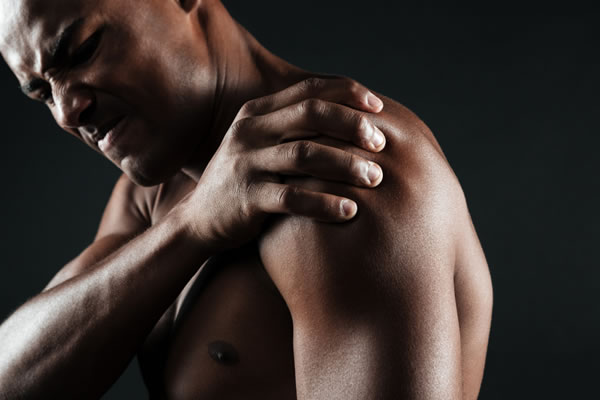
A Rotator Cuff Tear is a painful condition of the shoulder caused by injury, overuse, or repetitive activity. The tendons that are responsible for lifting the arm overhead become injured which can cause pain and weakness.

A Rotator Cuff Tear is a painful condition of the shoulder caused by injury, overuse, or repetitive activity. The tendons that are responsible for lifting the arm overhead become injured which can cause pain and weakness.
The shoulder joint is made up of two bones; the humerus in the upper arm, and the scapula. The 4 rotator cuff tendons are the supraspinatus, infraspinatus, teres minor and subscapularis. These muscles attach the shoulder blade to the humerus. There are responsible for lifting the arm overhead and rotation of the shoulder.
A Torn rotator cuff is diagnosed in the office after thorough discussion and physical exam with your orthopedic provider. X-rays of the shoulder are mostly used to rule out other shoulder problems. MRI can be ordered to evaluate for tendon tears or other soft tissue abnormalities.
The primary method of repairing a torn rotator cuff is through Arthroscopic surgery. This is a minimally invasive surgery through small incisions around the shoulder that allows the orthopedic specialist to reattach the torn tendons back to the humerus.
Reverse Total Shoulder replacement is an option to treat rotator cuff tears that have been torn for a long time may and are no longer reparable. Many times, these tears also have severe shoulder arthritis. Reverse Total Shoulder replacement involves attaching a metal ball to the socket and fixing the plastic socket to the humerus.
Most of the patients can start gentle range-of-motion exercises shortly after surgery, followed by light stretching and strengthening exercises 4-6 weeks after surgery. It takes approximately 6 weeks for the repaired tendon to heal back to the proximal humerus. Physical therapy is recommended to improve the range of motion and strength of the shoulder.
**Disclaimer: Treatment recommendations may vary depending on your true diagnosis. Always follow the recommendations of your orthopedic provider.